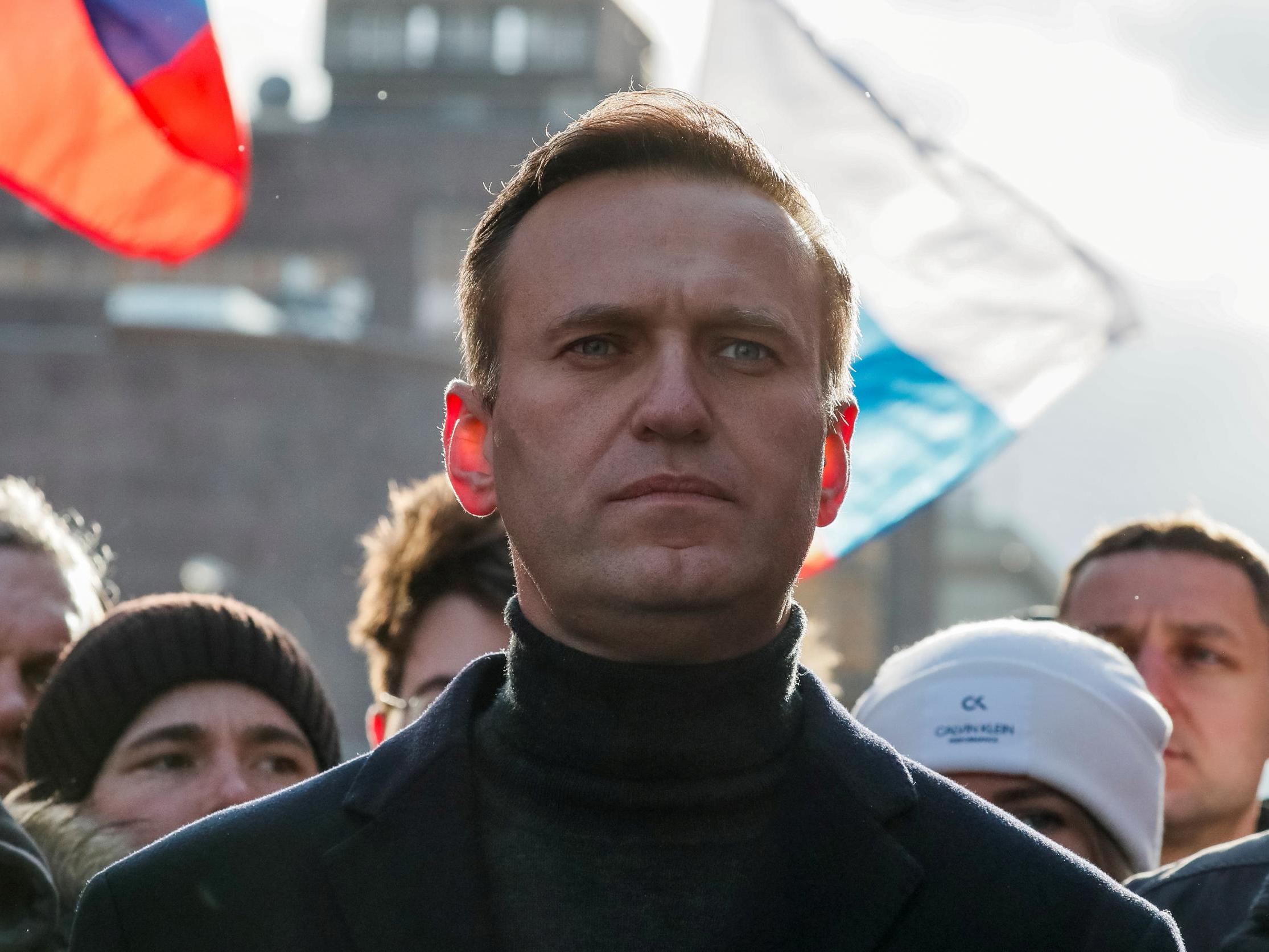Alexei Navalny: Novichok used to poison Russian opposition leader, Germany says
Military laboratory finds ‘proof without doubt’ of same chemical nerve agent as used in Sergei Skripal case

Britain has called on Russia to “tell the truth” about the poisoning of Alexei Navalny after Germany concluded the opposition leader was poisoned with novichok – the same nerve agent deployed in Salisbury.
Dominic Raab, Britain’s foreign secretary, said Moscow has “a clear case to answer” after Berlin said the Kremlin critic was targeted with the military-grade substance in an attempted murder.
Britain has long accused Russian operatives of using the Soviet-era poison to target Sergei Skripal, the former double agent attacked in Wiltshire in 2018.
In a statement on Wednesday, a spokesperson for the German government said a laboratory had identified “unequivocal evidence” of a chemical nerve agent from the novichok group.
Jens Stoltenberg, secretary general of Nato, said the findings were “shocking”.
“The use of a military-grade nerve agent makes it even more urgent that the Russian authorities conduct a full and transparent investigation,” he said in a statement.
“Nato regards any use of chemical weapons as a threat to international peace and security.”
Angela Merkel, the German chancellor, has “strongly” condemned the apparent poisoning, which she described as an attempt to stop Mr Navalny talking. “There are serious questions that only Russia can answer,” she said in a press conference.
Mr Navalny, a corruption investigator and a fierce critic of Russian president Vladimir Putin, collapsed shortly after take-off on a flight from Tomsk, Siberia, to Moscow on 20 August. Aide Kira Yarmysh suggested he may have been poisoned after drinking tea at the airport.
His plane made an emergency landing in Omsk, some 450 miles away, from where he was taken, already comatose, to a local hospital.
Authorities initially refused to allow him to be evacuated to Germany, claiming his situation was too “unstable” for transportation. Clinicians treating the opposition politician in Omsk suggested he was suffering from a “metabolic disease” that caused a sudden drop in blood sugar levels.
Such claims went in the face of a tip-off from a transport police officer, who said Mr Navalny had been poisoned with a highly toxic substance, and that those attending to him were working in hazmat suits.
Skripal attack aftermath – in pictures
Show all 15On 22 August, Russian authorities eventually bowed to international pressure and allowed Mr Navalny to be evacuated to Berlin’s Charite hospital. There, doctors concluded he had been poisoned by a cholinesterase inhibitor, a broad spectrum of compounds that include pesticides and nerve agents like novichok.
Mr Navalny remains in a coma and plugged into a ventilator, but with some improvement in his condition and without immediate threat to life. It is unclear what will happen when doctors attempt to bring him out of a coma – and if he will be left with long-term disabilities.
“His recovery will likely take a long time,” reads a statement released by the Charite hospital.
Berlin said testing showed “unequivocal evidence” of the presence of the nerve agent, and would be consulting partners including the EU and Nato “on an appropriate joint response”. Britain’s foreign secretary meanwhile promised “consequences for using banned chemical weapons”.
Mr Navalny’s allies insist he was deliberately poisoned by Russia’s authorities. In a tweet written shortly after the news broke, aide Ivan Zhdanov said that it was “beyond sensible doubt” that the opposition politician had been poisoned by the state.
“Novichok could be only administered by a government agency – the FSB, GRU,” he wrote, referring to Russia’s security and military intelligence agencies.
The Kremlin, which has previously rejected such accusations as “empty noise”, claimed it had yet to be informed of Berlin’s conclusions.
At the same time, it seemed to suggest that Mr Navalny’s poisoning took place in Germany.
“A whole series of tests were done in accordance with international standards before evacuating the patient, and they found no poisonous substances at all,” Kremlin spokesperson Dmitry Peskov said.
Maria Zakharova, Russia’s combative foreign affairs spokesperson, rejected the accusations as information warfare.
“Instead of a thorough investigation and joint inquiry, our partners prefer public statements without any accompanying evidence,” she said. “Once again we see another information campaign against Russia.”
Novichok came to international prominence in March 2018 when it was identified as the substance used to poison former Russian spy Mr Skripal and his daughter Yulia in Salisbury. The pair were found unconscious and frothing at the mouth on a bench outside a shopping centre.
Two more people, Dawn Sturgess and Charlie Rowley, were later treated for exposure to the nerve agent after Ms Sturgess used a discarded perfume bottle thought to have contained the poison. Ms Sturgess later died.
A police officer who was poisoned by novichok while investigating the attack on the Skripals had to move house with his family for their own safety.
Subscribe to Independent Premium to bookmark this article
Want to bookmark your favourite articles and stories to read or reference later? Start your Independent Premium subscription today.

Join our commenting forum
Join thought-provoking conversations, follow other Independent readers and see their replies